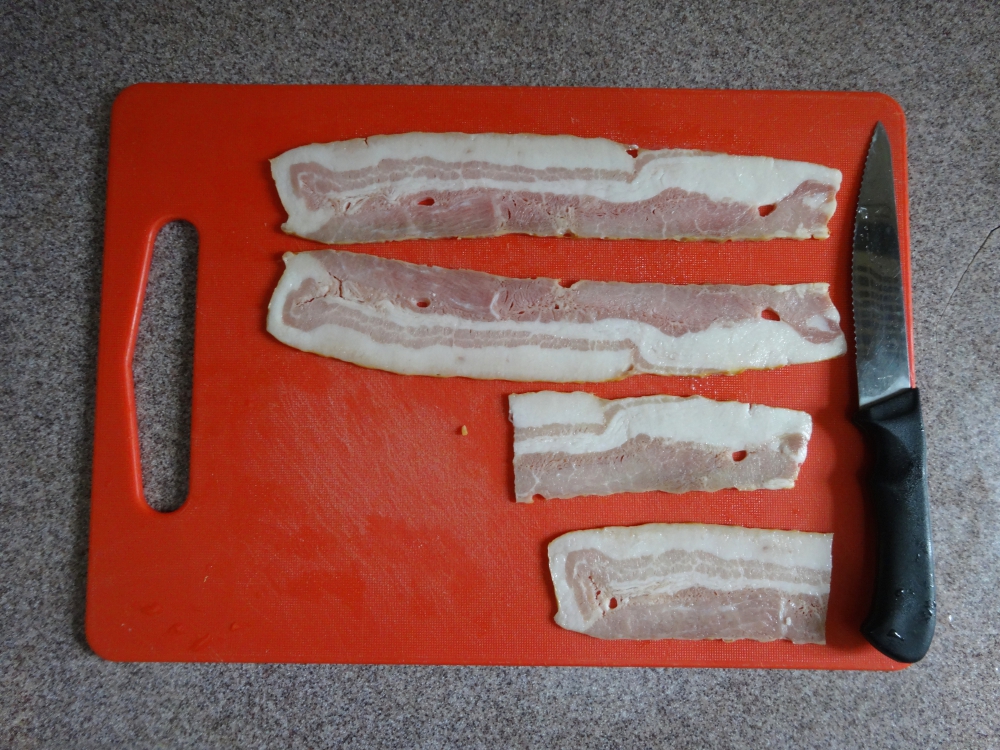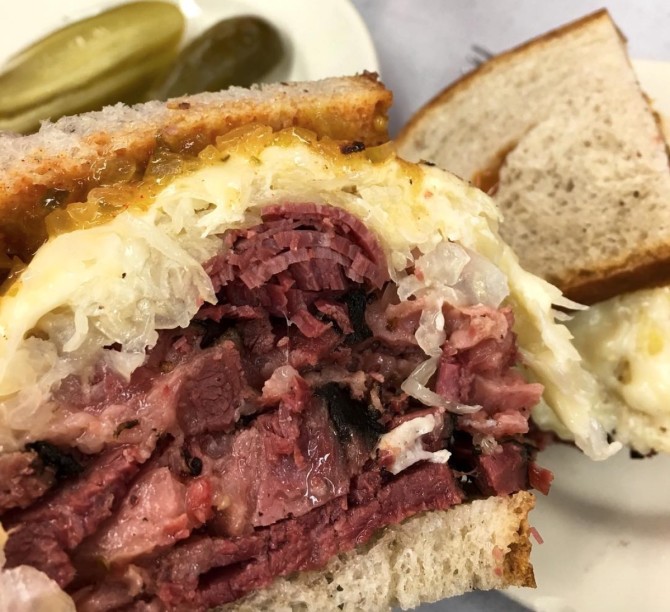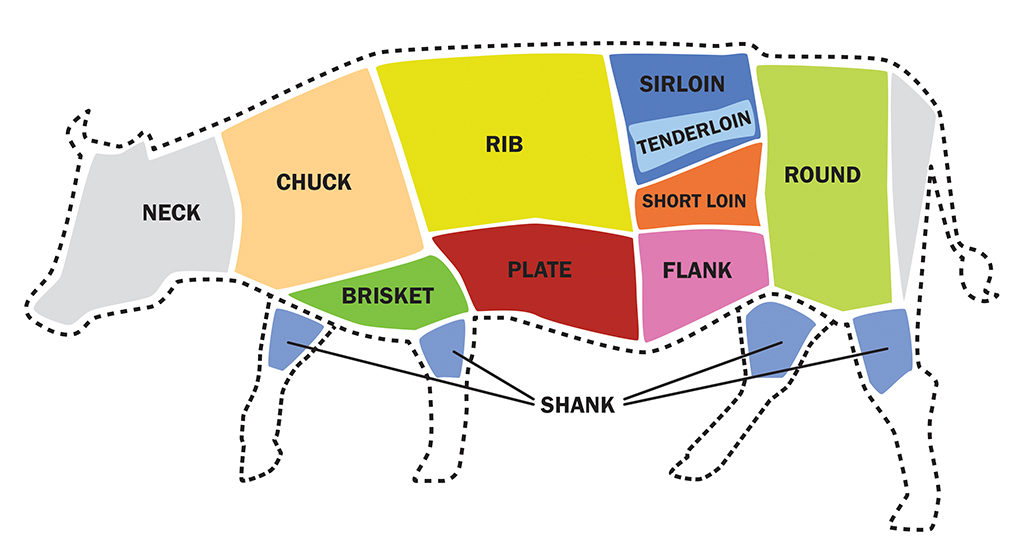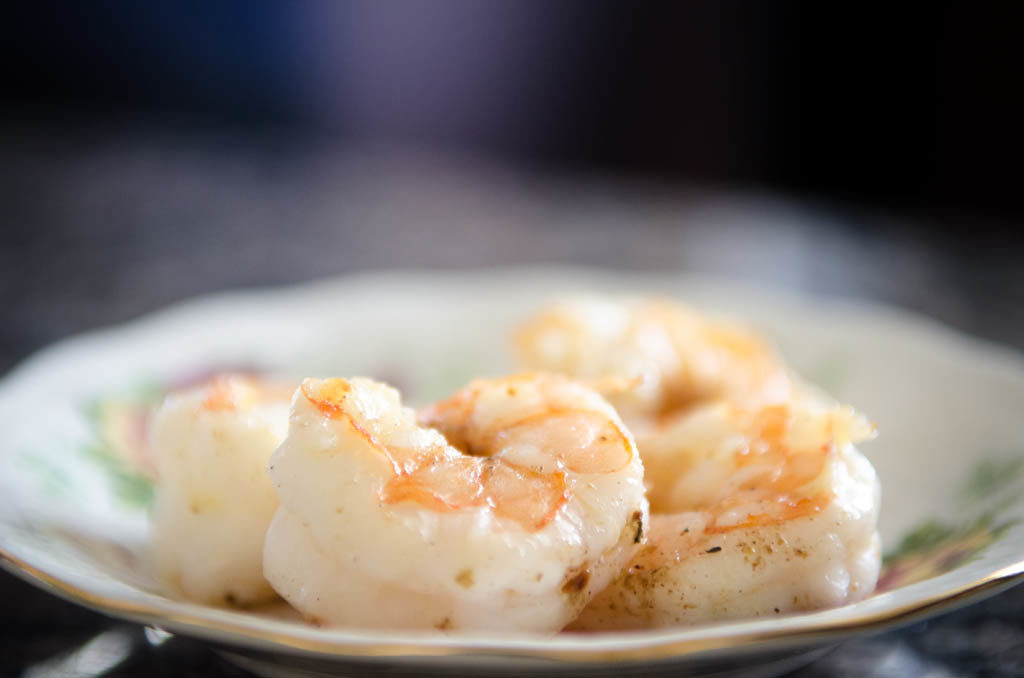There are many times when I explain to people that I keep Kosher and I just get blank stares.
“Wait, so you’ve never had bacon?”
“So you can’t eat meat and cheese together?”
“You can’t have shellfish either? Lobster is just so amazing!”
Those are just some of the questions I get, so let me break it down and explain some of the basic rules of keeping Kosher.
1. No mixing meat and dairy

Photo by Shira Kipnees
This is a major no-no in the Jewish religion, so no cheeseburgers for me. The rule of thumb is that you have to wait some time between eating meat and dairy, which in my family is about an hour.
My grandmother does three hours and some really religious people do seven hours. The rule is that “you can’t dip a calf in its mother’s milk,” so thus, no meat and dairy together. We even have separate plates and silverware for meat and dairy. The plate on the left is one of my meat ones and the one on the right is one of my dairy dishes.
2. No shellfish or anything considered a “bottom feeder”
Yes, that means I’ve never had lobster, scallops, shrimp, crabs, or other shellfish. No, I don’t feel like I’m missing out — especially after my 9th grade biology class where I had to dissect a shrimp and learned about the poop vein. The rule here is fins and scales – if it doesn’t have both of those and it’s in the ocean, then it’s not Kosher. That’s not to say that I don’t love my imitation crab, shrimp, and lobster.
3. No pork either

Photo by Anastasia Yip
I’ve never had bacon and I don’t feel like I’m missing out. I’m quite content with my veggie bacon. The rule with land animals is that the animal must chew its cud and have split hooves — if it doesn’t have that, it isn’t Kosher. However, surprisingly enough, sometimes bacon bits can be Kosher because they are made with imitation bacon flavoring and not real bacon.
4. No meat that hasn’t been slaughtered by a ritual slaughterer

Photo courtesy of @reydyg on Instagram
The animal cannot have been killed by another animal or have died by natural causes. Also, the animal cannot be diseased at the time of the slaughter. Ritual slaughter is known as shechitah, and the person who performs the slaughter is called a shochet, a religious man who is well-trained in Jewish law, especially the laws of being Kosher.
The animal is slaughtered with a quick, deep stroke across the throat with a sharp blade that has no nicks or unevenness. The method is painless, causes the animal to be unconscious in two seconds, and is widely considered the most humane way of slaughtering an animal.
Then there is also the rapid and complete draining of the blood to help make the meat Kosher. (If you’re wondering how the name Kosher salt came about, it’s because the crystals of Kosher salt were bigger and thus better to help drain the meat of its blood, making it good for making meat Kosher.)
5. No eating the hindquarters of an animal

Ilustration courtesy of Alyssa Brewer
That means no rump roast for me. Kosher butchers will often sell the hindquarters of an animal to non-Kosher butchers. That being said, I can have brisket, which is a wonderful, delicious thing.
6. No blood can be found anywhere

Photo by Amanda Shulman
Basically, the whole “no blood” thing extends to everything, including eggs. If you get an egg with a blood spot in it (which has never happened to me, but apparently once happened to my mom – who, incidentally, did not grow up Kosher, but became fully kosher when she married my dad), you can’t use that egg.
To check for blood spots, the egg is usually cracked in a separate container and then really checked to make sure there’s no blood. If there’s blood, the container and the egg have to be thrown out. If you just crack an egg in a pan and it has a blood spot, that pan is not kosher anymore. If there is no blood, you’re good to go. It’s pretty rare that there is ever a blood spot in an egg, so I often get to enjoy eggs, which really helps out during Passover.
7. It has to be certified Kosher

Photo by Shira Kipnees
There are a few types of certifications, but the one with the least amount of controversy is the OU symbol — for the Orthodox Union (aka certified by Orthodox Jews).
If there is a “D” next to the OU, that means it’s dairy. If there’s an “M,” that means it’s meat. Then there is another category called Pareve, as seen with an OU-Pareve symbol. Pareve means it’s neither meat nor dairy — think things like fruit, vegetables, and the like. However, around Passover time, there are products that will say “OU-P.” That does not mean Pareve — it means Passover, as in that food is Kosher for Passover.
This may seem like a lot of rules, but it’s definitely possible to do. While I was definitely sheltered a bit growing up having gone to a Jewish day school, I definitely made it work in college, especially with the help of my college’s dining facilities, which had a place called KIVO, which stands for Kosher, International, Vegan, and Organic. This meant that there was a place on campus where I could get Kosher meat and meals if I wanted to.
I’m going to be honest here, I’m less strict about the dairy stuff than the meat stuff. That means if I go out to a restaurant that isn’t certified Kosher, I’m going to eat something that’s vegetarian (or has a type of fish I know is kosher) if it isn’t a certified Kosher restaurant (which there are plenty of by me on the Upper West Side).
I won’t eat shellfish, so when I go to restaurants, if I want things customized, I often say something along the lines of: “I’m vegetarian and I’m allergic to shellfish… so if you could just make sure that there is no meat in the [broth, sauce, etc.] and remove any shellfish, that would be great, thanks!”
That being said, I will not eat any meat (excluding fish) unless I know it’s Kosher. It’s been interesting having to explain this to some of my friends and at some of the places I’ve worked, but it usually works out okay. So, sorry, I won’t hit up McDonald’s with you at 1 am for a cheeseburger, but I’ll go get a frosty with you at Wendy’s.



